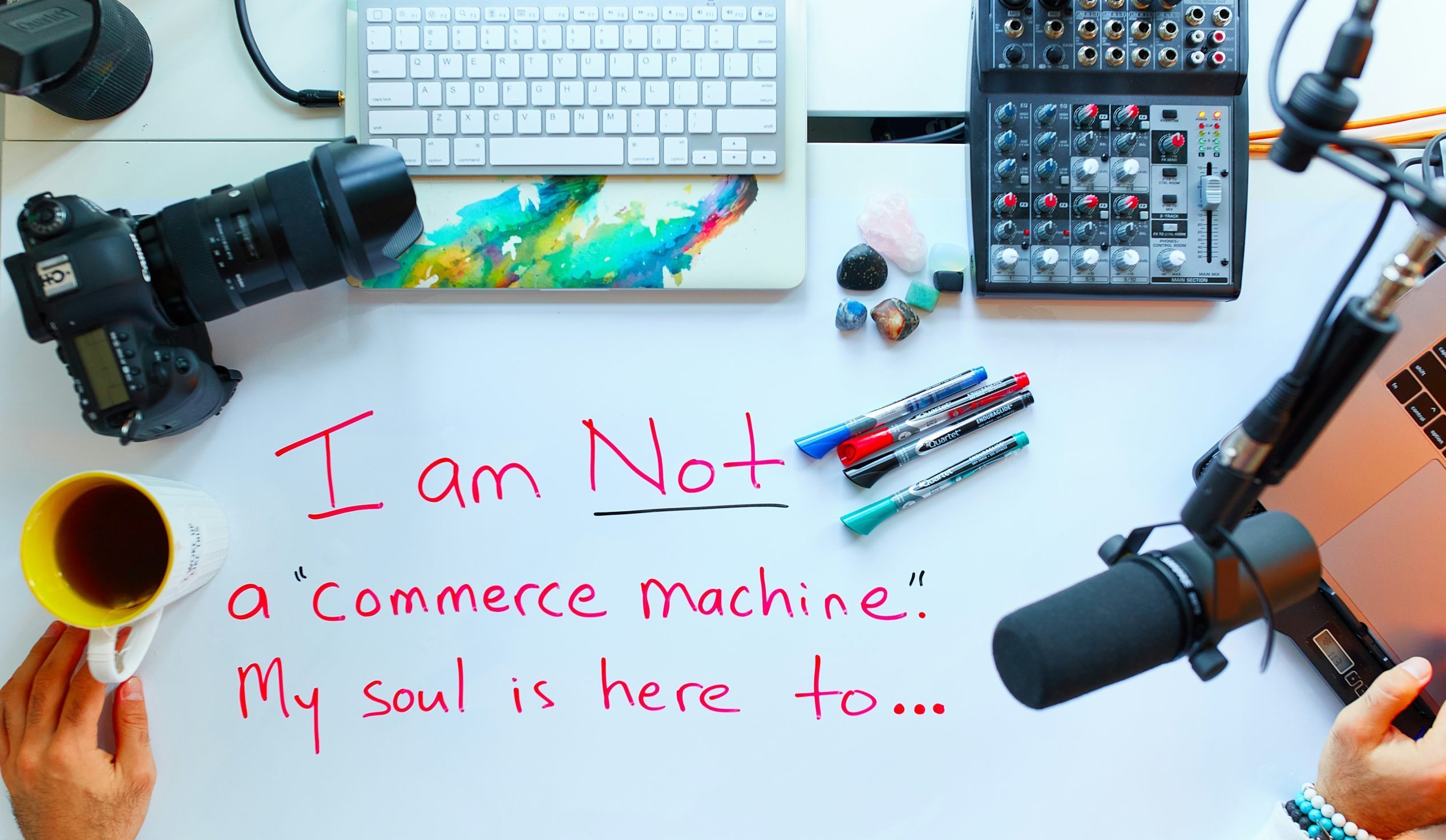Finding Your Brand’s Higher Purpose Helps Your Business Succeed, and Here’s Why

The Importance of Having a Higher Purpose
In our current day and age, 63% of consumers prefer to purchase from purpose-driven brands, which is why finding and defining your brand’s higher purpose is incredibly important.
But what exactly is a higher purpose?
Essentially, brands with a persuasive higher purpose set out their intent to change the world for better. Obvious examples include tackling issues such as racial discrimination, gender inequality, environmental sustainability, and so on so forth. Having a higher purpose helps brands connect with consumers on a deeper, more personalised level, as opposed to brands who don’t possess one.
Before we continue, should you read the above and wonder about the morality of having a higher purpose in a profit-driven business, let’s quash that misconception and doubt. After all, brands and capitalism have something in common. Both rely on some of the same principles of relationships, mutuality, and community.

Capitalism is grounded in value creation for all stakeholders – both the brand itself, and their consumers. If businesses were to become more conscious of societal issues and strive to rectify them, it creates stronger communities, mutuality, relationships, and inadvertently… profit for the business.
Ultimately, if businesses have a higher purpose that they constantly act on, shared value for society will be created through the progressive and communal system of bettering humanity.
How Does Having a Higher Purpose Benefit Your Business?
Let’s use Generation Z (born between 1997 and 2012) as an example.
In 2021, they accounted for 40% of consumers, which is a significant percentage. By 2026, they are slated to overtake the Millennials (born between 1981 and 1996) as the largest cohort of consumers.
By now, brands should have already begun planning strategies and tactics to appeal to and engage with this younger powerhouse crowd. After all, the preferences of Generation Z completely disrupt the consumer norms laid out by their predecessors, the Millennials.
Generation Z are, sadly, first-hand witnesses of the world’s post-boom[er] context of rising inequality, climate crisis, and rapid globalisation. Societal issues are rampant, with nary a solution in sight. As a result, brand purpose has become a supposed tonic to the societal ills that they see.

In the eyes of a young consumer, businesses who have a defined higher purpose have the opportunity to right the wrongs made by capitalism, and should seize the chance by giving back to wider society and drive value beyond shareholder interest.
This is why Generation Z consumers look closer at a brand’s heritage, her values, and ultimately, her purpose as opposed to Millennials. Prior to putting their trust (and coin) in brands, they must be able to see a genuine desire to better the world that they currently inhibit.
As such, brands must respond accordingly to build rapport, loyalty, and trust with the next generation of consumers.
A Spoonful of Sugar
To help elucidate a clearer picture of what brand purpose is, let’s discuss it in relation to corporate social responsibility (CSR).
Corporate social responsibility is a fantastic way for brands to give back to society, and should definitely be encouraged. However, it is vastly different from a brand’s higher purpose, because a brand’s purpose must be related to the products, or services she offers.
For example, a fashion retailer might claim that their purpose is to be environmentally sustainable, and that their method of doing so is to donate part of their proceeds to a non-profit organisation that helps to plant trees. This still wouldn’t be counted as the brand living their purpose, because there’s no relation to their products.

On one hand, if they were to source their clothing materials from ethical sources, this counts as acting on their brand purpose. Younger consumers would be more inclined to purchase from them, as opposed to brands who source from places with unethical standards.
On the other, if their products were manufactured with materials from unethical sources, this brand purpose of theirs would be seen as a genuflection to consumers and an act of tokenism for the sake of profit.
According to Sandra Duhé, expert on the subject of conscious capitalism, a brand operating at a higher level of purpose “renders decision-making that is strategic rather than tactical, positions practitioners to be managers rather than technicians, and enhances the professionalism and perceived value of the practice.”
Defining Your Brand’s Higher Purpose
Why is your business selling what it is selling? What is your business trying to achieve with its products or services? For business owners, the first step to identifying the brand’s higher purpose is to ask themselves that.
After all, people don’t buy what you do. They buy why you do it. Your brand purpose is linked intrinsically to the brand’s reason for existence, as well as the purpose behind what the company sells. This higher purpose should be intertwined throughout everything the company does, from its internal processes to its external communication.
With that being said, it’s incredibly vital to avoid the trap of tokenism. A brand purpose cannot be a mere show of fireworks, there for one moment and gone in the next. Consumers must be able to see brands committing to their purpose consistently over a long period of time, which builds the credible image and reputability of the business.
Lastly, at the core of your brand purpose should be your key demographic. A brand purpose will always put consumers first, putting them at the forefront of every executive decision made. Although your purpose might not appeal to everyone, it should appeal to your target audience.
After all, it’s your brand purpose that makes you relevant to your chosen audience.

Need Help?
With all that’s been written above, we know that defining a brand’s higher purpose is easier said than done. After all, it takes a proper branding project to clearly delineate a new direction for your brand to grow into.
Well, we would love to help your brand form deeper and longer lasting relationships with your consumers by threshing out a brand purpose that resonates with them and is perfect for you. Due to the COVID-19 pandemic, Enterprise Singapore has increased the cost defrayed for each branding project from 70% to 80%. Now would be a good time to seize the chance and find your brand’s higher purpose.
For a complimentary, no-obligations, brand audit, contact us today.